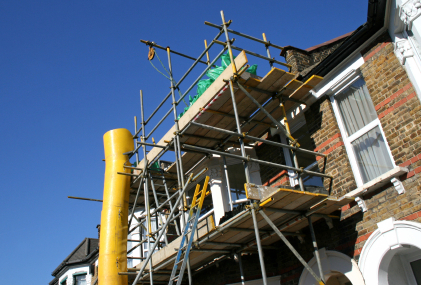Last updated on October 28th, 2019 at 05:00 pm.
Some people like to buy their property brand new and ready to move into. Others prefer to buy a resale property in Spain and customise it to exactly how they want. There are advantages in both approaches. However, at some point, even if you buy a new property, you will start to want to make adjustments to it. In these unsettled times, selling your home isn’t easy and many people have chosen to improve the property they currently have instead.
If you do decide to take this route then there are some obligations you should be aware of. Spain is actually quite strict on planning applications. This might not seem to be the case when you look round your urbanisation. Older settlements can seem to be a higgledy piggledy assortment of every build up, build under or build out that you can imagine.
However, most property that has something visible done to it should have applied for a licence by law. If they haven’t they are taking a very big gamble. The number of inspections of Spanish property has increased and last year 500 files were opened in the Torrevieja region alone. In one example, 80 people on a residential urbanisation had received notification that their property was under investigation.If you are caught out then you receive a fine and must return your property to its original state.
Making sure you’re legal
Most work of any kind on a property in Spain requires permission from the town hall. There are two categories of work:
- Major work (Obra mayor) e.g. building an extension conservatory or swimming pool
- Minor work (Obra menor) everything else such as adding a balustrade
Major works in Spain must have plans drawn up by an architect in order to obtain planning permission. Be careful if builders assure you they have already obtained planning permission. If this is the case you should check yourself with the town hall, having the correct paper work is your responsibility and not that of the builders.
You will also need to have permission from your community of owners. They will want to assure themselves that the changes you propose will not conflict with the tone of the community or be of a nuisance to others in it. Your proposal should be raised on the next agenda and discussed. If permission hasn’t been granted from the community of owners and you go ahead, then you will have to get either retrospective agreement from them or restore your property to how it was before.
Any changes that you make to the size and layout of your property will need to be recorded on the Title Deed in Spain. If you do not do this it can cause problems when it comes to someone inheriting your property or if you want to sell it. The specifications on the Title Deed must relate to the property being transferred.
Lotup
It used to be the case that if you hadn’t applied for planning permission, provided four years had elapsed since the work had been done, the town hall was unlikely to take action against you. This has now changed. A new law known as the Lotup (ley de ordenación del territorio, urbanismo y paisaje) has been approved by the Regional Board.
This new law applies specifically to the Comunidad Valenciana and means that you can be prosecuted if you have carried out any building work without proper planning permission in the last 15 rather than 4 years. A very significant increase.
What you should do
If, reading this article, you realise that you have done work to your property that you should have had permission for then you can apply for retrospective planning permission. There is no guarantee that this will be given but a good solicitor will give you advice on how to proceed.
Improving your home can make all the difference to your enjoyment of it. Don’t let the planning laws put you off. There are people out there who can help you make your property the perfect setting from which to enjoy Spain.
No comments yet
There are no comments on this post yet.






Leave a comment